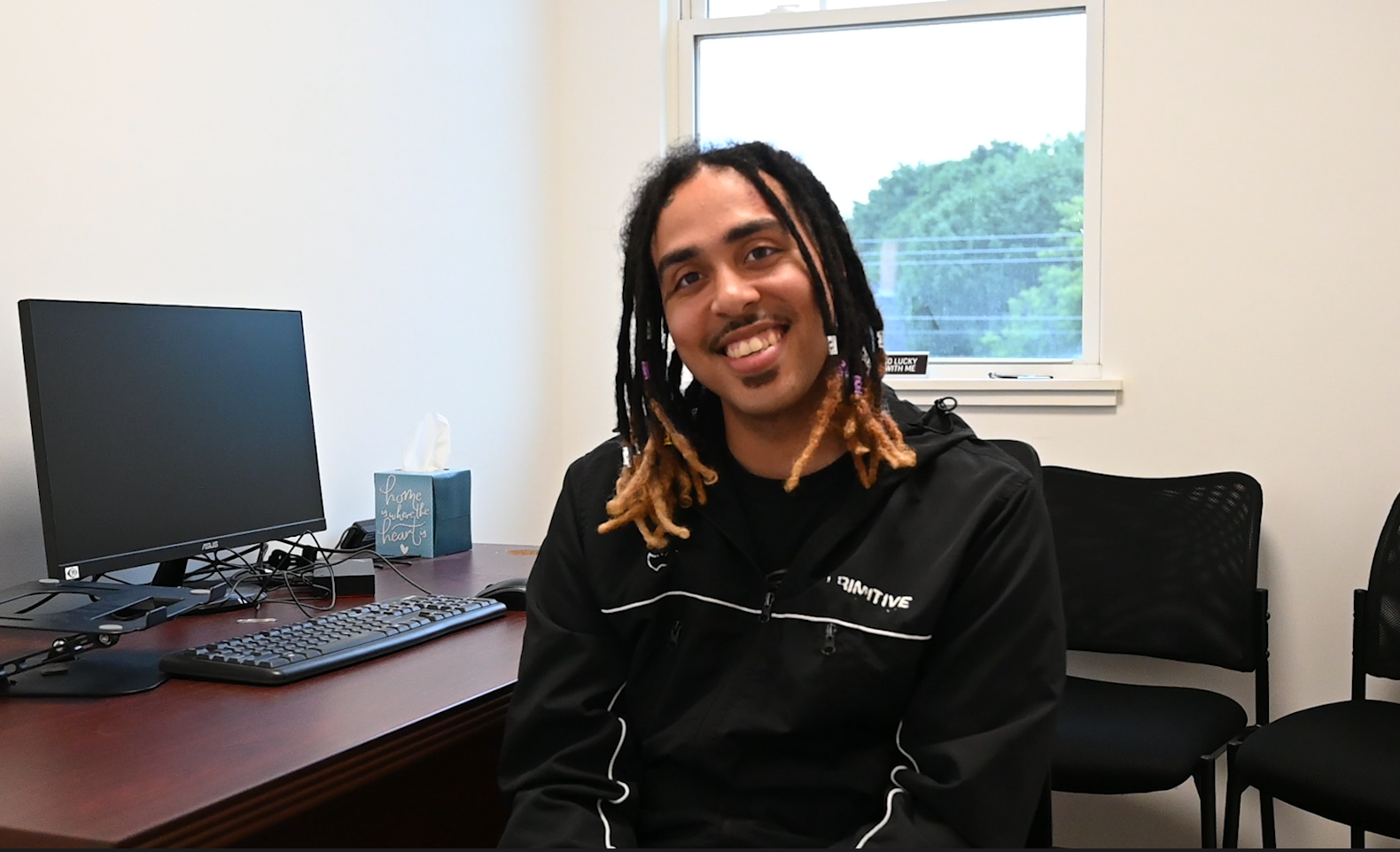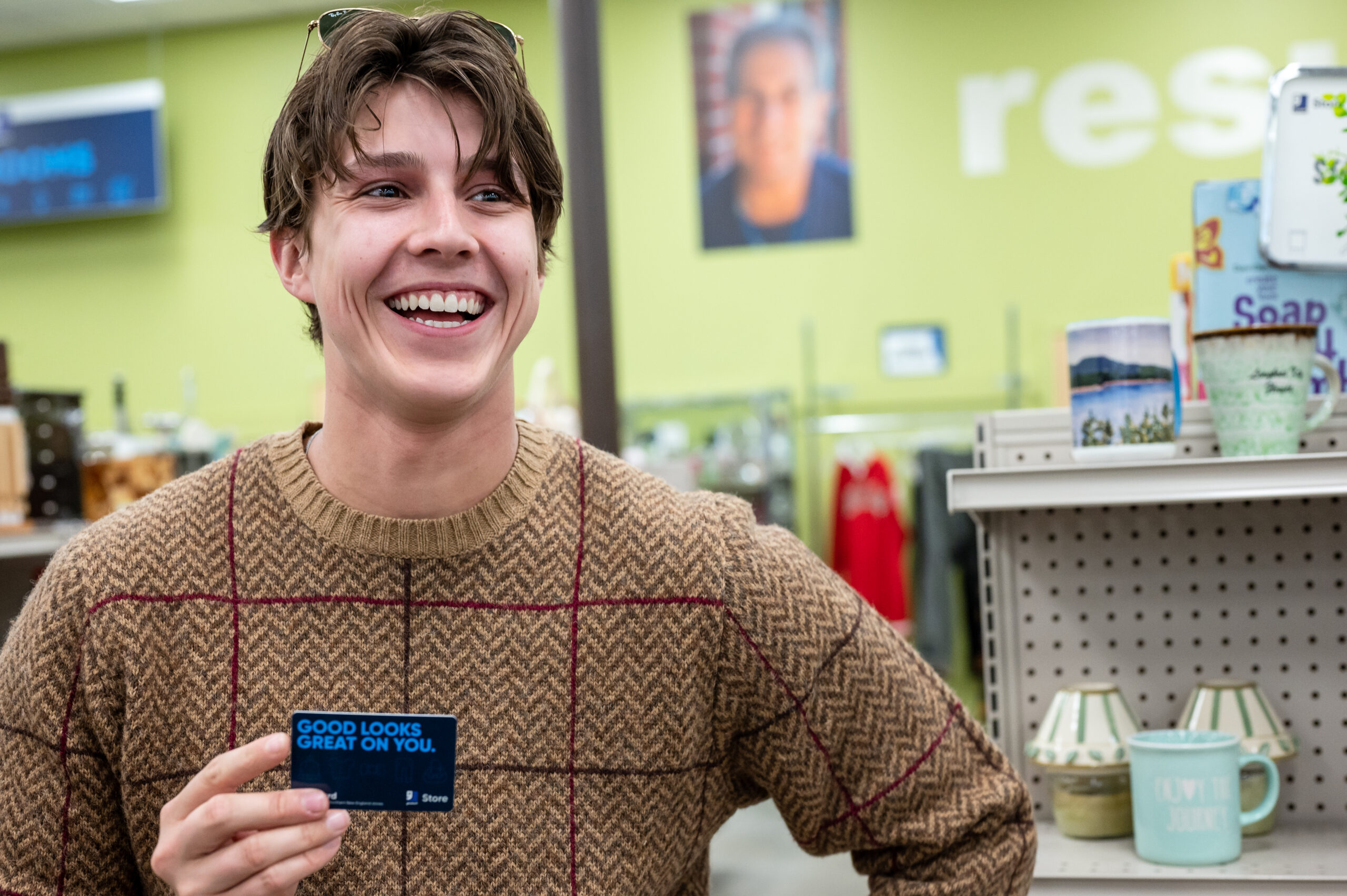News, Success Stories
VR goggles help clients gain real-world skills at Goodwill NeuroRehab
March 18, 2020
It’s a typical trip to the grocery store: remembering what to buy, reaching around fellow shoppers for items on the shelf, pacing an aisle to find the baking soda.
Except this shopper isn’t really at the grocery store. She’s at a Goodwill NeuroRehab Center, navigating a computerized produce department and cereal aisle, thanks to virtual reality (VR) technology.
Virtual reality allows users to temporarily transport themselves anywhere: vacation destinations, high-speed motorcycle rides, or the outer reaches of space. It’s strictly entertainment for most people, who might use a virtual reality headset and an app on their iPhones to have fun riding a roller coaster from the comforts of their living room.
But this technology has therapeutic uses, too. At Goodwill’s NeuroRehab Center in Scarborough, Maine, VR Goggles might be used to help a client practice driving or managing anxiety in large crowds. They can be used for range-of-motion assessments, balance, and so much more.

Goodwill’s NeuroReb Centers — with locations in Scarborough and Lewiston, Maine — treat clients who’ve experienced brain injury. A team of case managers, nurses, physical therapists, occupational therapists, neuropsychologists, speech pathologists, and others treat the cognitive, emotional and physical needs of patients, helping each individual rediscover their brain’s talents, capacity and abilities.
Teams take advantage of a range of tools, and virtual reality is another useful device that can be part of a client’s treatment plan. This technology can also be fun.
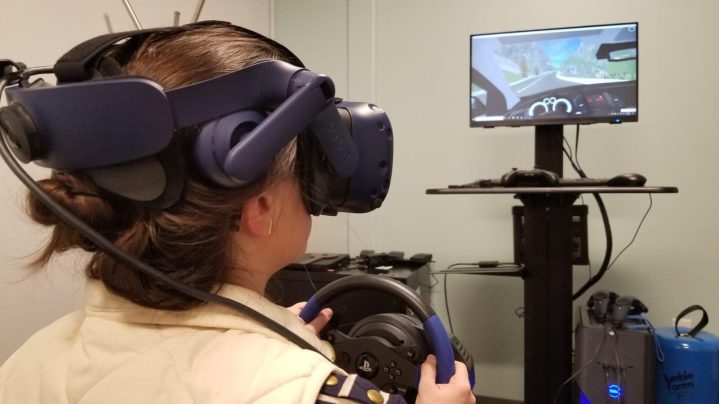
The setup at the NeuroRehab Center in Scarborough includes a headset (a bulky set of goggles that fits over your head) and a computer stand, where the therapist controls the different programs and can watch the same visuals the client sees through the headset. Depending on what skills are being worked on, a client might be standing and moving in a treatment room or sitting in a chair “driving” with a portable steering wheel and gas pedal.
With the goggles on, clients will see a virtual world. It’s obviously digital (the people and surroundings are clearly not real. They’re computerized versions of people and trees and buildings and roads) but the experience still feels very authentic. Clients practicing grocery shopping will feel like they’re in a grocery store. They’ll even see their arm reach out in front of them when their real arm reaches out for a loaf of bread. It feels very much like a game, which is another perk to the technology.
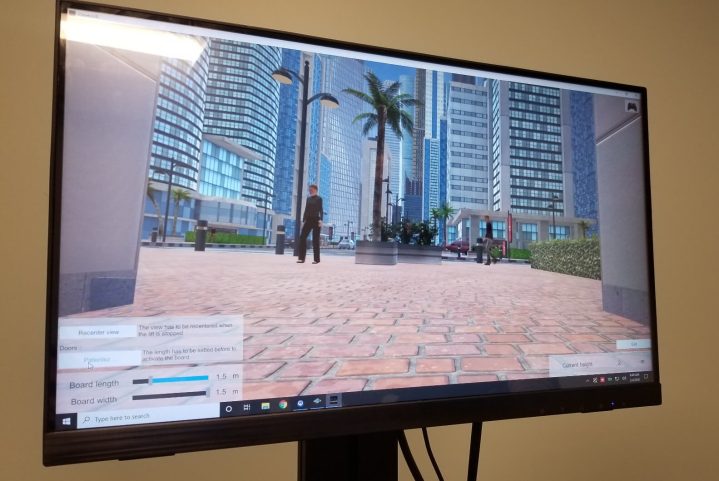
“Clients think it’s cool. It’s like playing a video game,” says Elizabeth Green, PT, DPT, at Goodwill’s NeuroRehab Center in Scarborough. And that’s incentivizing to clients who work very hard to regain strength, mobility, and balance. Therapy can be monotonous and challenging. “The more exciting we can make it, the more likely clients are to do it,” says Green.
And while it can be fun for clients, it’s relevant therapy, too. Practicing skills in virtual reality helps brains rewire, which can improve function, memory and other issues.
Clients who come to the NeuroRehab Center, perhaps following a stroke or concussion, might be faced with a range of symptoms, such as motion sickness, dizziness, memory loss, balance issues and limited range of motion. They might also have fears related to diving, navigating crowded spaces, remembering their route home, or where to find a specific item at the store.
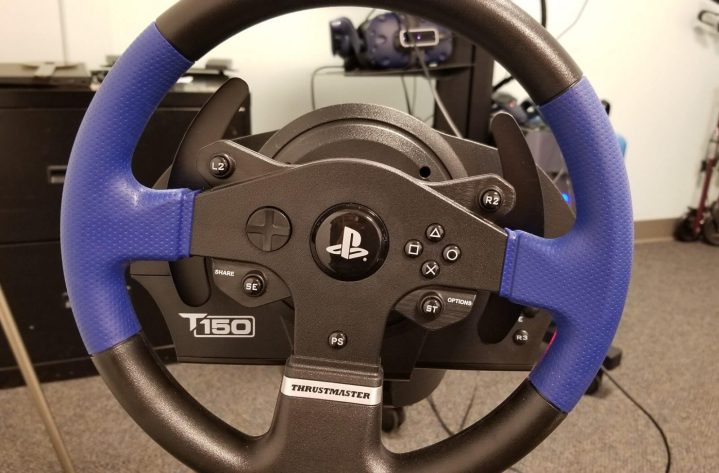
Team members work on these skills with clients at the NeuroRehab Centers and in real-world scenarios. They take patients to the store to shop and to their workplaces to work on related skills there. And they work together at home to relearn important life skills like cooking and cleaning. The benefit of VR goggles is the ability to start practicing those skills in a safe and controlled environment before transitioning to the real world.
A client can practice driving — focusing on the road, maintaining speed, reacting to changing lights, traffic and other on-the-road scenarios — without actually getting behind the wheel. They can practice walking through a grocery store, remembering their grocery list and where to find items without actually setting foot inside.
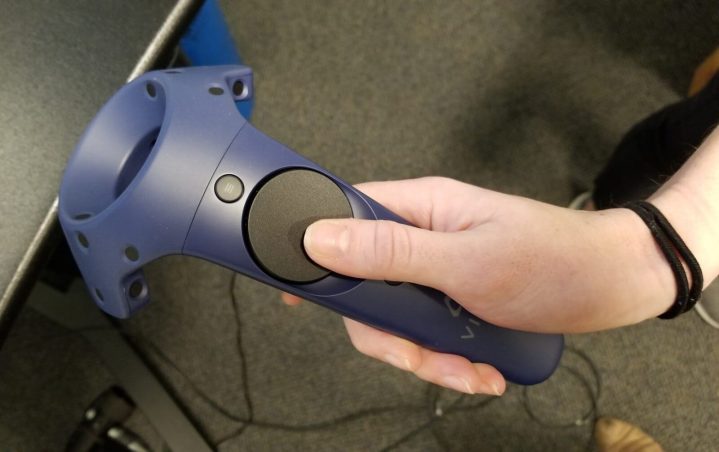
Those skills practiced in virtually reality translate to the real world, so when a client is ready, they can more easily transition to real-world situations. With a goal of helping clients regain skills and rediscover their brain’s ability following injury, Goodwill is proud to add another tool to their arsenal.
Find more information on Goodwill’s NeuroRehab services.
Goodwill helps people improve their lives – whether through work, recovering from a brain injury or providing a safe place to call home. This work is possible because of support from people like you. Please consider a gift today to make sure people continue to build stable lives far into the future. Goodwill NNE is a nonprofit and your gift is tax deductible.

